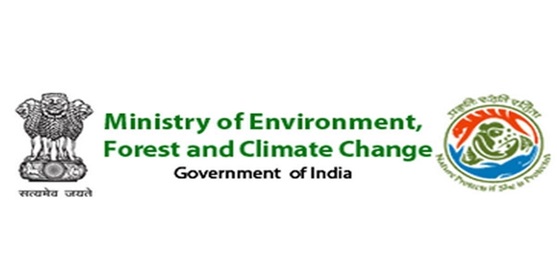Swachh Vayu Sarvekshan 2023 (Indian Express)

- 09 Sep 2023
Why in the News?
The second year of the Swachh Vayu Survekshan, carried out by the ministry based on self-assessments submitted by 130 identified cities under the National Clean Air Programme, saw Agra in Uttar Pradesh securing the second rank, followed by Thane in Maharashtra on the third spot.
About Swachh Vayu Sarvekshan:
- In September 2022, the Union Ministry of Environment, Forest, and Climate Change published rules for 'Swachh Vayu Sarvekshan - Ranking of Cities' as part of the National Clean Air Programme (NCAP).
- The idea behind Swachh Vayu Sarvekshan is to rank 131 cities in India based on how well they follow City Action Plans from NCAP.
- These plans are meant to reduce air pollution by up to 40% by 2025-26.
How Swachh Vayu Sarvekshan works?
- The Swachh Vayu Sarvekshan methodology categorizes 131 cities into three groups based on population:
- The first group includes 47 cities with a population exceeding 10 lakhs.
- The second group comprises 44 cities with a population ranging from 3 to 10 lakhs.
- The third group consists of 40 cities with a population less than 3 lakhs.
- Cities are required to perform self-assessments using the framework available on the PRANA online portal, which stands for "Portal for Regulation of Air-pollution in Non-Attainment Cities."
- The assessment focuses on key components, including solid waste management, road dust control, management of construction and demolition waste, and the control of emissions from vehicles and industries.
- Cash awards will be given to the top three performing cities in each group, fostering a spirit of competitive federalism.
- This Sarvekshan serves as a valuable tool for cities to plan and execute actions aimed at improving air quality.
- It's important to note that this ranking is not based on direct measurements of air quality parameters but on the proactive measures taken by cities to enhance air quality across various domains.
About Swachh Vayu Sarvekshan 2023:
- The Union Environment, Forest and Climate Change Minister, Bhupender Yadav, recently announced awards for the Swachh Vayu Sarvekshan 2023, which is a survey aimed at assessing clean air.
- In the first category, which includes cities with a population of more than 10 lakhs, Indore secured the top spot, followed by Agra and Thane.
- Indore achieved the highest score of 187 out of 200.
- In the second category, which covers cities with populations between 3-10 lakhs, Amravati took the first position, with Moradabad and Guntur following closely.
- Similarly, in the third category, which comprises cities with populations less than 3 lakhs, Parwanoo (Himachal Pradesh) secured the first rank, with Kala Amb (Himachal Pradesh) and Angul (Odisha) in the second and third positions, respectively.
- The assessment considered eight categories, including biomass and municipal solid waste burning, road dust, dust from construction and demolition waste, vehicular emissions, emissions from industries, other emissions, IEC activities (public awareness), and improvement in PM10 concentrations.
- Urban local bodies submitted self-assessment reports with supporting documents to determine the rankings.
- Notably, in the 2022 survey, Lucknow, Prayagraj, and Varanasi were the top three cities in the million-plus population category, but they ranked lower in the current year's survey.
What is National Clean Air Programme?
- The National Clean Air Programme (NCAP), initiated in 2019, stands as India's primary initiative to improve air quality significantly.
- This program was introduced as a comprehensive, time-bound, national-level strategy aimed at addressing the widespread issue of air pollution throughout the country.
- The primary objective is to achieve a reduction of 20% to 30% in Particulate Matter concentrations by 2024, with 2017 serving as the baseline year.
- NCAP has identified 132 non-attainment cities nationwide. These cities have consistently failed to meet the National Ambient Air Quality Standards (NAAQS) for over five years.
- The Ministry of Environment, Forest, and Climate Change serves as the nodal ministry responsible for overseeing NCAP's implementation.
